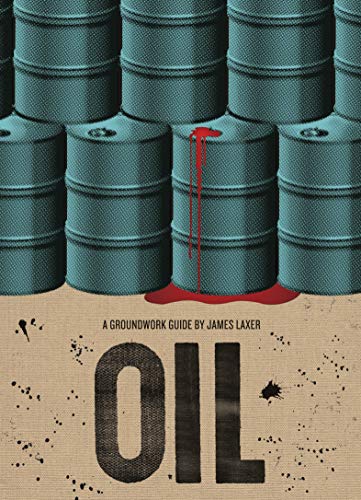-
Gangs: A Groundwork Guide
Richard Swift
eBook (Groundwood Books, Nov. 30, 2011)A Booklist Editors’ Choice and a Society of School Librarians International (SSLI) Honor Book Street gangs have exploded worldwide. Tattoos, baggy pants, tagging, gangsta style, the unspoken threat -- it's all just around the corner in most of the world's major cities. From the streets of Los Angeles to the shantytowns of Cape Town, hundreds of thousands of "at risk" youth are deciding whether they should join their local gang. Violence, guns, the drug trade, racism, poverty, families under pressure and ever-widening slums all provide a witch's brew in which the youth gang tempts young males and females with a sense of identity and belonging that their world has denied them. Gangs exposes the roots of the problem as it moves from the banlieues of France to the favelas of Brazil. It offers a startling analysis of the complicity of the official adult world and some controversial ideas for reforms that might just undermine the appeal of gang life. For many of the world's young -- especially those who are poor -- joining a gang is a real career choice. It is a choice that can be as deadly for young gangsters as for their victims. Richard Swift shows us that we fail to understand gangs at our peril.
-
Genocide: A Groundwork Guide
Jane Springer
eBook (Groundwood Books, July 1, 2006)"[The Groundwork Guides] are excellent books, mandatory for school libraries and the increasing body of young people prepared to take ownership of the situations and problems previous generations have left them." -- Globe and Mail Some view the systematic killing, rape and destruction of homes in Darfur as a grave humanitarian crisis. For others, it’s a clear example of the ultimate crime against humanity -- genocide. Who is right? What is genocide? What is the impact on humanity of wiping out entire groups of people? Who are the endangered human beings in today’s world? This thoughtful book helps young readers understand these and other difficult questions. Providing an overview of the history of genocide worldwide, the book explores the paradox that while a person who murders another person can be tried and even executed for the crime, a person who murders hundreds or thousands of people usually goes free. Using case studies the book points out their unique character while at the same time establishing important links between them. Most important, the book answers the question, what can be done to prevent genocide from happening in the future?
-
Gangs: A Groundwork Guide
Richard Swift
Hardcover (Groundwood Books, March 29, 2011)Street gangs have exploded in popularity worldwide. Tattoos, baggy pants, tagging, gangsta style clothes this unspoken threat is always just around the corner in most of the world's major cities. In search of a sense of identity and belonging that their world has denied them, young people are pushed into gangs by a witch’s brew of violence, guns, drugs, racism, poverty, families under pressure, and ever-widening slums. Gangs exposes the roots of the problem, from the bidonvilles of France to the favelas of Brazil. It offers a startling analysis of the complicity of the adult world, as well as hard-hitting reforms that might just undermine the appeal of gang life. Most of all, it shows that we fail to understand gangs at our peril.
-
Oil: A Groundwork Guide
James Laxer
language (Groundwood Books, March 1, 2008)"[The Groundwork Guides] are excellent books, mandatory for school libraries and the increasing body of young people prepared to take ownership of the situations and problems previous generations have left them." -- Globe and MailOil, our main source of energy, underlies the world's economy. In the twentieth century its availability and relatively low price allowed for the industrial growth and development of the world's leading economies. The new rapidly developing giants, India and China, want access to the same possibilities. But today we know that cheap, easily accessible oil supplies are dwindling, and we are beginning to recognize the true cost to the world's environment of our profligate use of this form of energy.As Oil shows, a substantial portion of the world's remaining supply lies in countries whose interests are not identical with those of the major industrial powers.
-
Empire: A Groundwork Guide
James Laxer
language (Groundwood Books, July 1, 2006)"[The Groundwork Guides] are excellent books, mandatory for school libraries and the increasing body of young people prepared to take ownership of the situations and problems previous generations have left them." -- Globe and Mail The United States presides over the most far-flung imperial system ever established. Empire compares the American Empire to those of the past, finding that much can be learned from the fates of the British, Roman, Chinese, Incan, and Aztec empires. James Laxer draws ominous parallels with the British who discovered too late that empire building ultimately threatens the health of democracy at home. Documenting how the American Empire works and what it means to the rest of the world, Empire asks: Does the American Empire bring stability to a troubled world? Or, like its imperial predecessors, does it impose inequality and oppression on humanity? And what happens when an empire stumbles?
-
Cities: A Groundwork Guide
John Lorinc
eBook (Groundwood Books, Aug. 1, 2008)"[The Groundwork Guides] are excellent books, mandatory for school libraries and the increasing body of young people prepared to take ownership of the situations and problems previous generations have left them." -- Globe and Mail Today, more people live in cities than in rural areas. The search for better housing, transit, economic opportunity, and security within neighbourhoods forces today's city-dwellers -- in both the developed world and in megacities in Asia, Africa, and Latin America -- to confront what it means to live in our urban world. In this book, cities specialist John Lorinc considers the enormous implications of the mass migration away from rural regions, and predicts that solutions will emerge from neighbourhoods and dynamic networks linking communities to governments and the broader urban world.
-
Gangs: A Groundwork Guide
Richard Swift
Hardcover (Groundwood Books, March 24, 1784)None